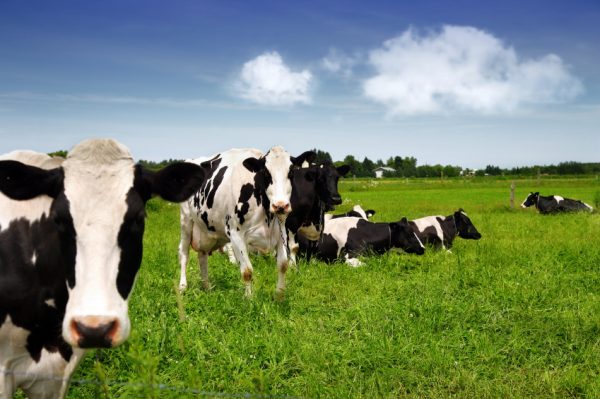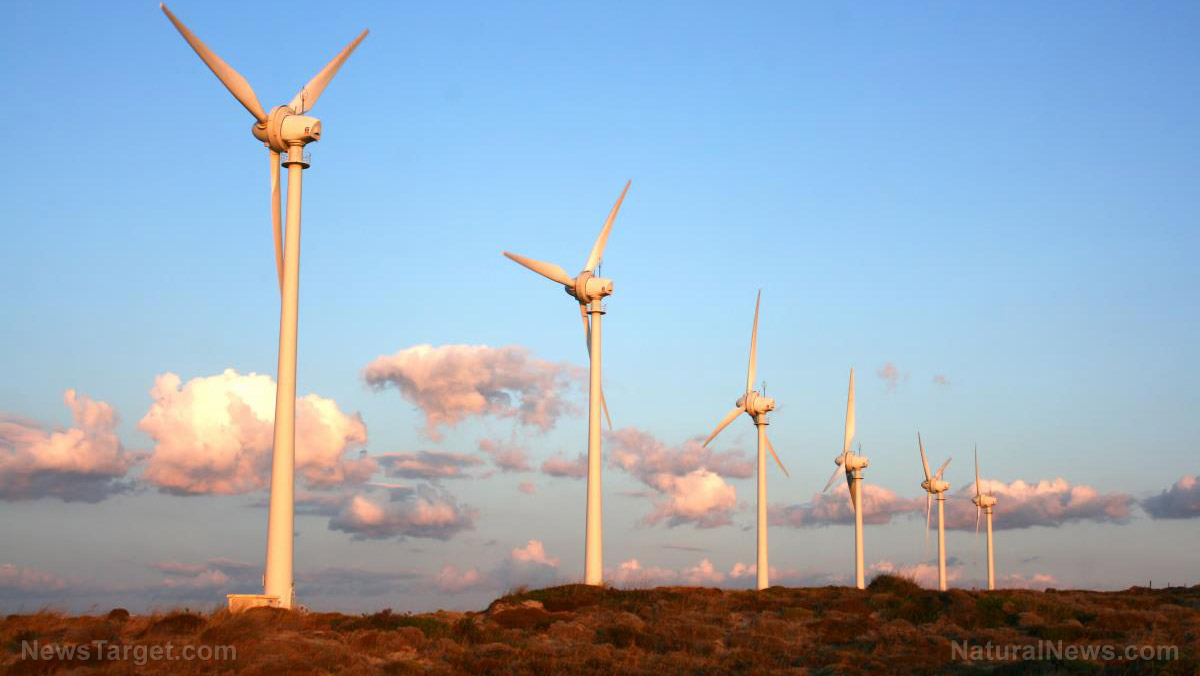Methane madness: How exaggerated climate claims are targeting farmers and cows
By isabelle // 2025-02-08
Tweet
Share
Copy

- Governments worldwide are imposing strict regulations on farmers to reduce methane emissions from livestock, using supplements like Bovaer.
- A study from the CO2 Coalition argues that methane's warming potential is negligible compared to CO2.
- Methane concentrations are increasing 300 times slower than CO2, and its warming effect is minimal due to saturation at higher concentrations.
- Recent research indicates that microbial sources, not fossil fuels, are the primary contributors to rising methane levels.
- Policies targeting methane from agriculture are based on shaky science and threaten farmers' livelihoods and food affordability.
The science behind methane’s limited impact
At the heart of the debate is the concept of radiative forcing, which measures how greenhouse gases trap heat in the atmosphere. While methane is often labeled a "super pollutant," Happer and van Wijngaarden’s research reveals that its warming effect is minimal. Methane molecules are far less abundant than CO2, and their warming potential is heavily "saturated" at higher concentrations. In other words, adding more methane to the atmosphere has a diminishing effect on global temperatures. Research also highlights that methane concentrations are increasing at a rate 300 times slower than CO2, making its annual contribution to warming roughly one-tenth that of CO2. This stands in stark contrast to the apocalyptic rhetoric often used by climate activists, who portray methane as a dire threat to the planet.Methane’s true sources are microbes, not fossil fuels
Adding to the growing skepticism of methane alarmism is a recent study published in PNAS, which found that the surge in atmospheric methane is primarily driven by microbial sources, not fossil fuels. Using isotopic analysis, researchers determined that wetlands, agriculture, and waste—not oil and gas production—are the main contributors to rising methane levels. This finding undermines the narrative that targeting fossil fuels is the key to reducing methane emissions. Moreover, a study published in Nature Geoscience revealed that methane’s warming effect has been overstated. The research found that methane’s absorption of solar radiation actually reduces its overall warming impact by about 30 percent. This counterintuitive discovery challenges the simplistic view of methane as a major driver of climate change and raises questions about the validity of current climate models.Climate alarmism is costing farmers
Despite the mounting evidence, governments are doubling down on policies that punish farmers. In the U.K., major supermarkets like Tesco and Aldi are already sourcing milk from cows fed Bovaer, a supplement that inhibits methane production. While some consumers have boycotted these products, many have no choice but to purchase them as alternatives become scarce. The British government has gone a step further, mandating that all suitable cattle be given Bovaer by 2030. This decision has sparked widespread concern about the long-term health effects of consuming dairy products from medicated cows. Critics argue that the safety of Bovaer has not been sufficiently studied, and its potential risks to human health remain unknown. The war on methane is a prime example of how climate alarmism is driving irrational and harmful policies. Farmers, who are essential to feeding the world, are being scapegoated for a problem that is largely exaggerated. The scientific evidence clearly shows that methane’s impact on global warming is minimal, and its sources are more natural than anthropogenic. It is time for policymakers to reject the pseudoscience fueling the methane panic and embrace a more balanced approach to climate policy. Instead of punishing farmers, governments should focus on supporting agricultural innovation and ensuring food security. The public must demand greater transparency and rigor in climate science, and resist the fearmongering that has come to dominate the debate. The methane myth is just one example of how climate alarmism is being used to advance a radical agenda. It is time to push back against these false narratives and restore common sense to the climate conversation. Sources for this article include: WattsUpWithThat.com WattsUpWithThat.com ScienceNews.orgTweet
Share
Copy
Tagged Under:
climate change junk science carbon dioxide methane Methane emissions pseudoscience climate alarmism
You Might Also Like
The loss of pollinators: The hidden ecological cost of WIND TURBINES
By Lance D Johnson // Share
Florida moves to ban weather modification as concerns over geoengineering grow
By Cassie B. // Share
Recent News
Trump chooses negotiation table over Israeli airstrikes in key Iran policy decision
By isabelle // Share
Possible biosignatures detected on Exoplanet K2-18b, raising hopes for alien life
By isabelle // Share
"Wartime Homefront Essential Skills" on BrightU: How to grow and preserve food at home
By jacobthomas // Share










